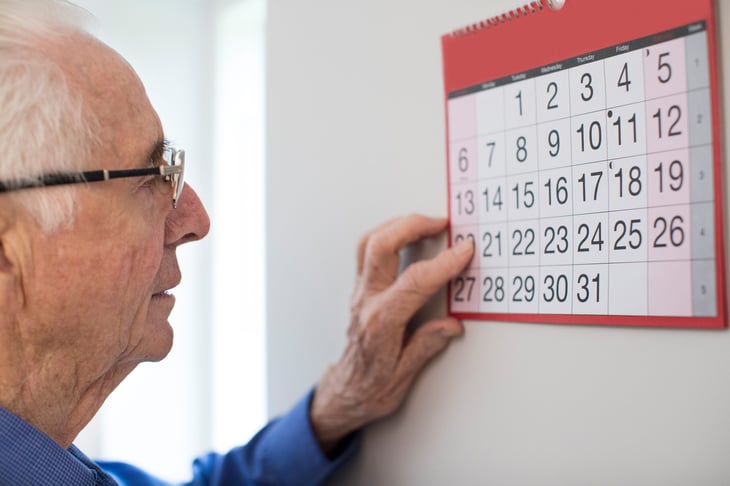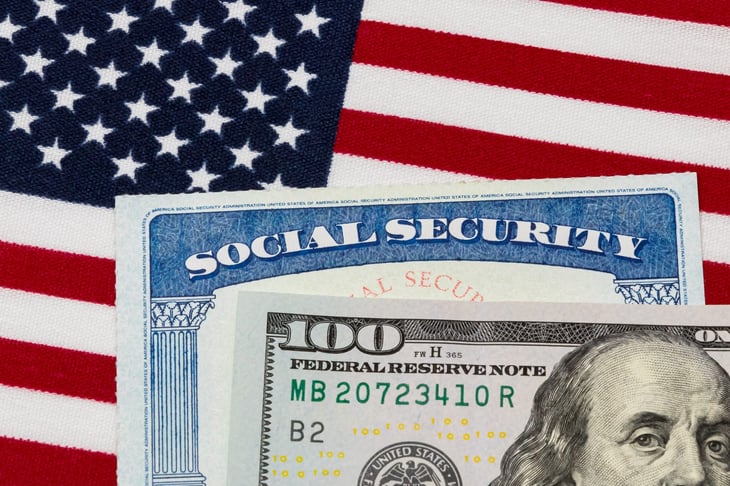
Many people understand the basics of Social Security long before they retire: You pay into the program with your taxes throughout your working years, and then there’ll be a nice chunk of change waiting for you afterward.
We learn as we age that things get more complicated than that. Much is written on everything from eligibility requirements for ex-spouses to how to maximize your Social Security checks.
There are also certain things that would’ve been nice to know ahead of time, but that many folks don’t realize until they start receiving benefits. Here’s a quick look at some of those.
1. You are paid in arrears

Uncle Sam is very particular about your paying him on time, but of course, he isn’t quite so considerate in return.
As the Social Security Administration freely admits, you can expect every Social Security check to be “paid in the month that follows the month for which they are due.” In other words, your July check will arrive in August.
But it’s not considered a late payment when the federal government does it.
2. You are paid monthly

In our working lives, many of us become accustomed to weekly, biweekly or at least twice monthly pay — and we build our budgets around that.
These pay periods describe the vast majority of American paychecks, according to the federal Bureau of Labor Statistics. Two-thirds of employers pay either weekly or biweekly, while fewer than 11% of employers pay monthly.
Nonetheless, Social Security operates on the unpopular monthly frequency.
3. Your payment date usually depends on your birthday

Once upon a time — prior to 1997 — most people received their Social Security checks in the first three days of the month. This didn’t work very well.
Because everyone expected their checks at the same time, it created a burden on the Social Security Administration, banks, businesses, the postal service and others.
The SSA found that services were less overwhelmed when checks were spread out throughout the month. This process is called “payment cycling,” and today it typically works like this, though there are exceptions:
- If your birthday is on the 1st through the 10th: Benefits are paid on the second Wednesday of the month.
- If your birthday is on the 11th through the 20th: Benefits are paid on the third Wednesday.
- If your birthday is on the 21st through the 31st: Benefits are paid on the fourth Wednesday.
4. If you receive SSI, your payment date is different

There is an exception to receiving Social Security based on your birth date.
If you’re also receiving Supplemental Security Income (SSI) benefits — which are income supplements for people who are elderly, blind or disabled, and who have little to no income — you’ll receive your Social Security payment on the third of the month, just like in the good old days. Meanwhile, you’ll get your SSI payment on the first.
5. You might owe taxes on it

About 40% of people who receive Social Security benefits end up paying taxes on them. This happens to people who:
- File as an individual and have more than $25,000 in income.
- File jointly and have more than $32,000 in income.
- File separately but are married, usually.
This used to only happen to a small fraction of Social Security recipients, but because the income brackets for taxing Social Security haven’t been updated since 1984, it now happens to many of us.
Learn how you might avoid this problem in “7 Ways To Avoid Paying Taxes on Your Social Security Income.”





Add a Comment
Our Policy: We welcome relevant and respectful comments in order to foster healthy and informative discussions. All other comments may be removed. Comments with links are automatically held for moderation.